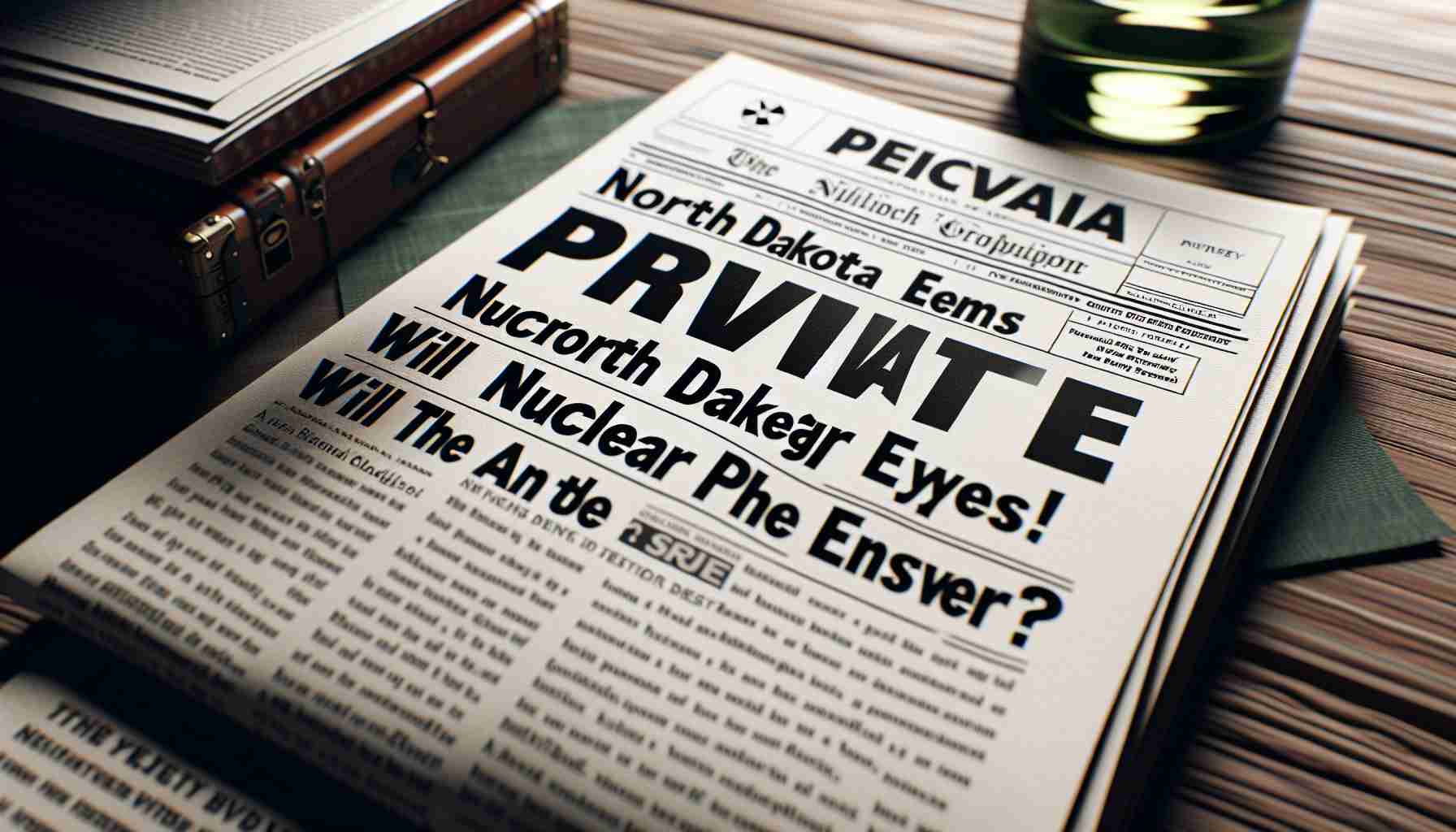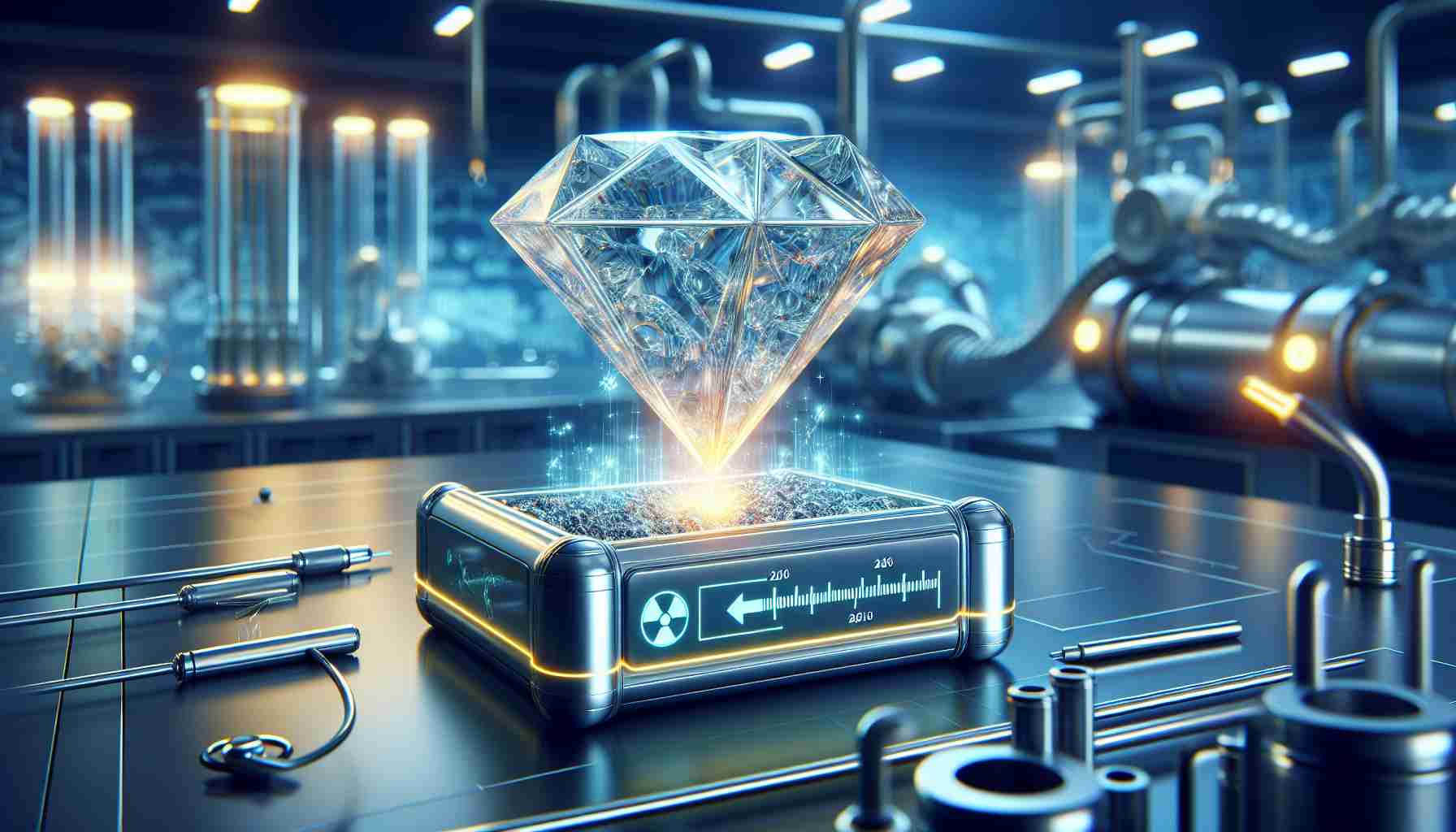Exciting developments are on the horizon for North Dakota’s energy landscape. Lawmakers in the state are considering a bold move to explore the potential of nuclear energy. House Bill 1025 proposes a budget of $500,000 to fund a comprehensive study assessing the feasibility of implementing nuclear power in the region. This initiative aims not only to evaluate the technology’s practicality but also to delve into its environmental and economic repercussions.
Senator David Houge from Minot emphasized the importance of forward-thinking strategies in energy generation, highlighting that the journey towards nuclear power is complex yet essential. He conveyed optimism about the state’s future, indicating that investigating these options sooner rather than later will be beneficial for North Dakota’s energy needs.
In addition, representatives from Xcel Energy have provided insights into their existing nuclear sites in Minnesota, which North Dakota legislators recently toured. It’s noteworthy that nuclear reactors currently contribute around 18% of the energy used across the United States.
The House Energy and Natural Resources Committee has yet to reach a decision on this proposal, but the discussions indicate a significant step towards diversifying North Dakota’s energy portfolio. As the state navigates these possibilities, the implications of this study could pave the way for a modern energy solution.
Implications of North Dakota’s Nuclear Aspirations
The potential shift towards nuclear energy in North Dakota carries significant implications for both local and global landscapes. As the state considers House Bill 1025, which allocates $500,000 for a feasibility study, the endeavor reflects a broader trend in energy diversification that many regions are pursuing to combat climate change and ensure energy security.
At the societal level, embracing nuclear power could reshape perceptions of energy consumption. Public acceptance of nuclear technology often hinges on successful information campaigns that address safety, waste management, and long-term environmental impacts. If North Dakota successfully navigates these waters, it could serve as a template for other states facing similar energy challenges.
Culturally, this pivot may trigger dialogue about the future of fossil fuels and the transition to renewable sources. With nuclear energy contributing currently about 18% of U.S. power, its role in a balanced energy grid could diminish dependence on oil and coal, fostering a more sustainable energy culture.
Economically, North Dakota’s exploration of nuclear power has the potential to enhance job creation in high-tech sectors, bolster local economies, and attract investment. As global demand for cleaner energy sources rises, states that adapt will position themselves favorably in the international market.
Environmental considerations also loom large. Nuclear power, while not without its challenges, produces minimal greenhouse gas emissions compared to traditional energy sources. By diminishing its carbon footprint, North Dakota could significantly contribute to national goals of reducing emissions and combating climate change.
As interest grows in nuclear energy, emerging technological advancements in safety and efficiency could redefine its viability. Should North Dakota proceed with this initiative, it could not only change the state’s energy landscape but also inspire a shift on a national and global scale, leading towards a cleaner, more sustainable future.
Nuclear Energy: North Dakota’s Next Leap into the Future?
Exploring Nuclear Energy in North Dakota
North Dakota is on the brink of a transformative energy initiative as lawmakers consider House Bill 1025, which seeks to allocate $500,000 for a comprehensive study on the feasibility of nuclear power in the state. This study will not only assess the technological viability of nuclear energy but will also analyze its environmental and economic implications.
The Role of Nuclear Energy in the U.S.
Currently, nuclear reactors generate approximately 18% of the total electricity used in the United States. With this significant contribution, the exploration of nuclear energy becomes especially relevant as states strive for energy independence and sustainability. North Dakota’s consideration of nuclear energy aligns with national trends towards diversifying energy sources, particularly in response to climate change and the need for reliable power.
Key Highlights of House Bill 1025
– Budget Allocation: The proposed $500,000 budget aims to fund a thorough feasibility study focused on nuclear energy.
– Environmental Assessment: The study will explore the environmental impacts of introducing nuclear energy in North Dakota, a crucial aspect given the state’s commitment to preserving its natural resources.
– Economic Implications: Assessing the economic feasibility will involve analyzing costs, potential job creation, and long-term energy pricing stability.
Insights from Industry Experts
Senator David Houge from Minot has voiced strong support for this initiative, underscoring the necessity of innovative energy solutions for the state’s future. Representatives from Xcel Energy, following a recent tour of their nuclear facilities in Minnesota, provided valuable insights into existing nuclear technology and its management. This exchange of information and experience is vital as North Dakota embarks on this prospective journey.
Pros and Cons of Nuclear Energy
# Pros:
– Low Carbon Emissions: Nuclear power is known for its minimal greenhouse gas emissions, making it a cleaner alternative compared to fossil fuels.
– Reliable Energy Source: Nuclear power plants operate at high capacity factors, providing a stable and continuous power supply.
– Job Creation: The construction and operation of nuclear facilities can lead to significant employment opportunities in the local economy.
# Cons:
– High Initial Costs: The construction of nuclear power plants involves substantial financial investment and long lead times.
– Waste Management: The disposal and management of nuclear waste remain contentious issues that require careful planning and long-term solutions.
– Public Perception: There may be resistance from the public related to safety concerns and historical nuclear incidents.
Looking Ahead: What This Means for North Dakota
The discussions surrounding House Bill 1025 and nuclear energy in North Dakota represent a pivotal moment for the state’s energy landscape. As the House Energy and Natural Resources Committee evaluates the proposal, the implications of the study could redefine energy initiatives in North Dakota, paving the way for a diverse energy portfolio.
Predictions and Trends
As renewable energy sources like wind and solar energy grow in importance, nuclear power could complement these alternatives, providing a stable base-load power generation option. The decision to invest in nuclear energy infrastructure could lead to enhanced energy security for North Dakota while contributing to national energy goals.
For ongoing updates and developments in North Dakota’s energy sector, visit North Dakota Government.
The source of the article is from the blog dk1250.com


